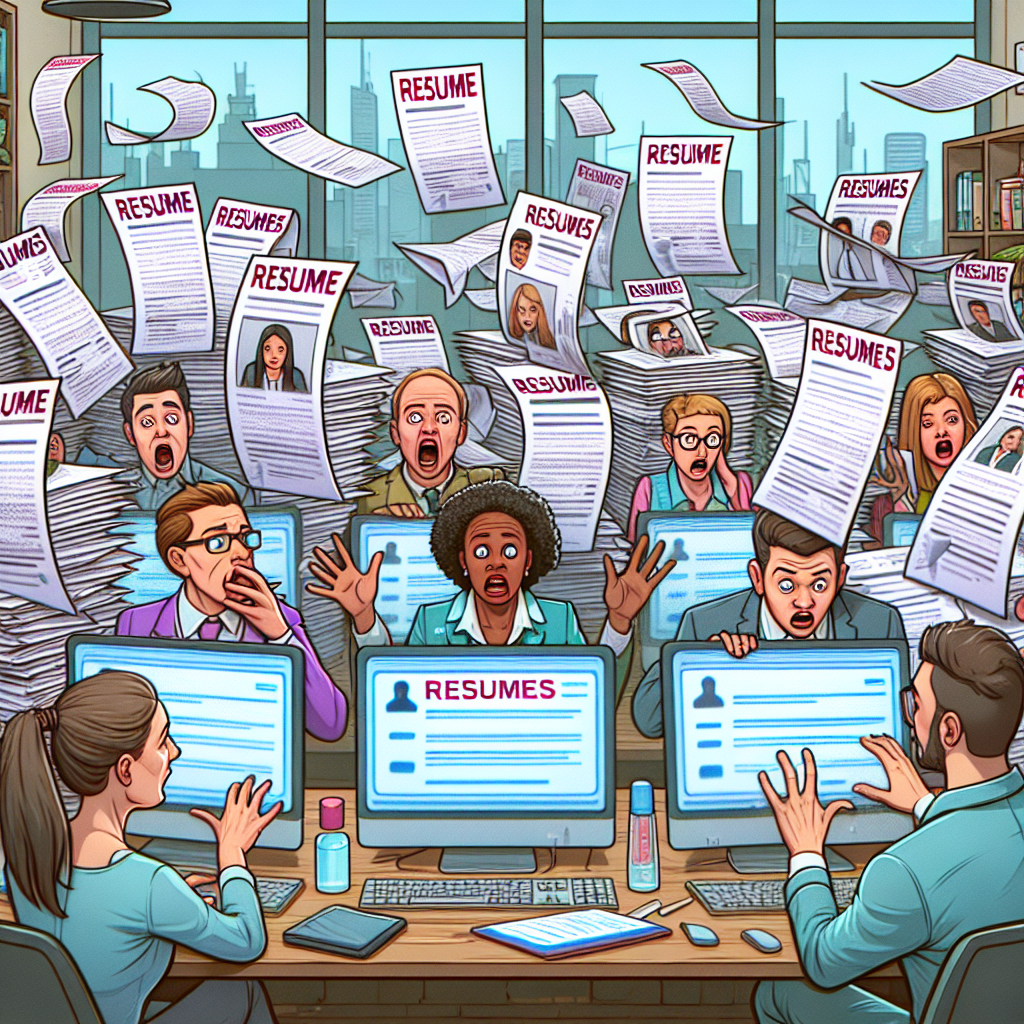-
Table of Contents
AI-Generated Resumes Overwhelm Recruiters’ Inboxes

In the digital age, the job application process has undergone significant transformations, with artificial intelligence (AI) emerging as a pivotal player. One of the most notable changes is the rise of AI-generated resumes, which are flooding recruiters’ inboxes at an unprecedented rate. This phenomenon is reshaping the landscape of recruitment, presenting both challenges and opportunities for employers and job seekers alike.
The Surge of AI in Resume Creation
AI technologies have become increasingly sophisticated, enabling them to assist job seekers in crafting resumes that are optimized for specific job descriptions. These tools use algorithms to analyze job postings and generate customized resumes that highlight the most relevant skills and experiences, significantly increasing a candidate’s chances of passing through automated screening processes.
- Enhanced customization: AI can tailor resumes to align closely with job descriptions, using keyword optimization to bypass applicant tracking systems (ATS).
- Efficiency: AI tools can generate resumes quickly, allowing applicants to apply for more jobs in less time.
- Accessibility: With AI resume builders, individuals who struggle with resume writing can produce competent and professional resumes.
Impact on Recruiters
The influx of AI-generated resumes is a double-edged sword for recruiters. On one hand, it leads to a higher volume of applications, potentially increasing the chances of finding the perfect candidate. On the other hand, it can overwhelm recruitment processes, making it more difficult to identify genuinely qualified candidates among a sea of optimized resumes.
- Volume overload: Recruiters face an increasing number of applications per job opening, complicating the screening process.
- Quality vs. quantity: The rise in application numbers doesn’t necessarily translate to higher quality candidates, as AI-generated resumes can sometimes prioritize form over substance.
- Increased reliance on ATS: To manage the high volume of resumes, recruiters are more dependent on automated systems, which may not always accurately assess a candidate’s suitability.
Case Studies and Real-World Examples
Several case studies highlight the practical implications of AI-generated resumes in the recruitment process:
- Case Study 1: A tech company in Silicon Valley reported a 50% increase in applications after the widespread adoption of AI resume tools. The company had to adopt more sophisticated ATS software to handle the influx, which initially led to a 30% increase in recruitment costs.
- Case Study 2: A recruitment agency specializing in marketing roles noted that AI-generated resumes often missed crucial creative aspects that are vital for the industry, leading to a mismatch between the candidates’ actual skills and the skills listed on their resumes.
Statistical Insights
Recent statistics shed light on the extent and effects of AI-generated resumes:
- A survey by a leading job board found that 70% of job seekers who used AI tools to create resumes reported an increase in interview calls, but only 20% felt that the jobs they secured were a good match.
- According to a recruitment firm’s report, there was a 40% increase in the total number of resumes received per job posting in 2022, with about 60% estimated to be AI-generated.
Challenges and Opportunities
The proliferation of AI-generated resumes presents several challenges and opportunities for the recruitment industry:
Challenges
- Distinguishing between AI-enhanced and genuine content: Recruiters must develop skills and tools to differentiate between resumes that accurately reflect a candidate’s abilities and those that are overly optimized.
- Adapting recruitment strategies: Companies need to update their recruitment processes to handle the higher volume and potentially misleading nature of AI-generated resumes.
Opportunities
- Improved recruitment tools: The rise of AI-generated resumes is driving the development of more advanced ATS and AI tools that can better identify suitable candidates.
- Enhanced candidate matching: Long-term, AI could help improve the accuracy of matching candidates to jobs, benefiting both employers and job seekers.
Conclusion
The impact of AI-generated resumes on the recruitment process is profound and multifaceted. While they offer the promise of efficiency and enhanced job-matching, they also pose significant challenges for recruiters, who must sift through an ever-growing pool of applicants to find genuine talent. As the technology evolves, it will be crucial for both job seekers and recruiters to adapt to these changes. By embracing new tools and strategies, the recruitment industry can harness the potential of AI to create more effective and equitable job markets.
In conclusion, the future of recruitment lies in balancing the benefits of AI-generated resumes with the need for genuine human oversight. This will ensure that the recruitment process remains both efficient and fair, helping connect the right people with the right jobs in an increasingly automated world.

